Those white flakes around your neck and shoulders each time you scratch that itchy scalp are an indication that you’ve got dandruff. They can be embarrassing and daunting. The good news is, the right dandruff shampoo puts that scalp condition at ease.
What Is Dandruff? Causes and Symptoms
Dandruff is a condition peculiar to the scalp that comes along with flaking skin, white specks, and more often than not, itching. This scalp condition isn't contagious per se, but it can stay for longer on the scalp if not given the necessary care.
Dandruff may be caused by:
-
Dry Skin: When the scalp gets dry, especially during humid days.
-
Seborrheic Dermatitis: This develops from greasy skin and fungal growth.
-
Contact Dermatitis: Dandruff appears on the scalp as a result of sensitivity of the scalp to certain hair products. We recommend a patch treatment if you have a sensitive scalp, especially when trying out a new product on your hair.
-
Malassezia Yeast: This fungus appears on the scalp and comes with frequent irritation, itching, and flaking.
-
Poor Wash With a Shampoo: When you wash your hair less frequently, or if your hair is poorly washed, it allows for oil and skin cells to build up over time. This causes the hair pores to clog, leading to flaking and itching.
What Your Dandruff Shampoo Should Have
These ingredients are targeted to fight against specific scalp conditions.
Zinc Pyrithione
This ingredient is a must-have in many anti-dandruff shampoos today because it focuses on fungal and bacterial infections on the scalp. Even at that, it is mild and not a harsh chemical and can be used for a regular wash without the fear of causing damage to the scalp.
Ketoconazole
Researchers have proven that it is a powerful antifungal ingredient and is best in treating mild to severe forms of dandruff. It can be found in medicated anti-dandruff shampoo.
Salicylic Acid
Helps to clean the scalp and remove sloughed skin. It is a great ingredient for dandruff that is caused by an oily scalp. This ingredient helps to balance the oil secretion. However, it may strip out the hair's oil if not used along with a moisturizing conditioner.
Selenium Sulfide
This ingredient helps to break down the top layer of the skin. It also reduces Malassezia yeast. It is best used under the advice of a dermatologist.
Natural Dandruff Remedies
These natural dandruff remedies are plant-derived and are great for anyone with a vegan lifestyle, who wants a completely dandruff-free scalp.
Tea Tree Oil
This oil is fast gaining recognition, unlike other essential natural oils. It is an oil with unique antifungal and anti-inflammatory properties, making it relevant in the plant-based, sulfate-free shampoo industry. It gives relief from itching, reduces inflammation, and flakes over time.
Aloe Vera Gel
This is a gem locked in a gel, because it contains natural enzymes that restore a hydrated scalp and help to soothe any form of irritation and redness.
Coconut Oil
Penetrates deeply into the root and helps to fight off fungus while locking the scalp with moisture completely.
Apple Cider Vinegar Rinse
This natural remedy works well in balancing the pH of the scalp and it decreases fungal growth.
How to Choose the Right Dandruff Shampoo for Your Scalp Type
Every scalp type is different and should be treated as such, which is why you should know what works for you.
-
Dry Scalp: If you realize you are having little flakes and your scalp appears itchy, you are likely to have a dry scalp. A shampoo that moisturizes especially contains ingredients like aloe vera and coconut oil is the first remedy to get your scalp hydrated, flake-free, and itch-free. Be sure the shampoo is free from sulfate and alcohol. GK Hair Moisturizing Shampoo is recommended for this fix.
Is your dandruff a result of your dry scalp? Find Out the Best Shampoo for Scalp and the Ingredients to Look for.
-
Oily Scalp: If your scalp is often greasy, you may experience larger flakes and a greater itch. You should immediately reach for a shampoo that balances oil production. GK Hair's Balancing Shampoo is a good option to begin with.
-
Sensitive Scalp: If your scalp gets irritated when you use dyes, fragrances, or harsh chemicals, use a hypoallergenic formula with few ingredients. You can opt for GK Hair's Anti-Dandruff Shampoo.
-
Color-Treated Hair: There are several over-the-counter anti-dandruff shampoos in various sales outlets, and many strip off color from color-treated hair. Nonetheless, the best anti-dandruff shampoo for color-treated hair would be clearly labelled as “color-safe” or “safe for color-treated hair.” Only then can you apply it to your hair.
How Often Should You Use a Dandruff Shampoo?
Well, the answer to this question greatly depends on the severity of one's case of dandruff, and it differs with person.
If white specks and flakes are mild with little itch, wash with an anti-dandruff shampoo 2-3 times per week. On the other hand, if white specks, flakes, and itches become alarming, it is a clear-cut indication of severe dandruff. Use an anti-dandruff shampoo more frequently. A daily wash is very welcome, but you must be sure to follow the instructions on the product label. You will observe a noticeable difference if you closely and properly follow your routine. As soon as you find these differences—reduce white specks, flakes, and itch—limit the use of the dandruff treatment to once a week.
Color-Treated Hair: Best Anti-Dandruff Shampoo for It
When compared with natural hair, color-treated hair needs special care because it dries out and breaks easily. Many anti-dandruff shampoos contain chemicals that are considered harsh and can cause the wearing off of hair color. Knowing this, you need a dandruff shampoo that contains or is
-
Sulfate-free—to protect and maintain your hair hue.
-
pH balanced—to maintain the natural pH balance of the hair.
-
Hydrating ingredients—should be infused with argan and coconut oil to moisturize and give additional shine
-
Zinc pyrithione or tea tree oil—because of the anti-fungal and antibacterial properties, they are effective for anti-dandruff.
GK Hair’s Top Picks
All GK Hair Shampoos are sulfate-free.
-
PH+ Shampoo helps to balance the pH level of your scalp.
-
Balancing Shampoo helps to bring normalcy to excess oil production on the scalp.
-
Moisturizing Shampoo contains essential oils that keep the hair and scalp well hydrated and soft.
-
Anti-Dandruff Shampoo helps to get rid of dandruff, whether mild or severe.
-
Shield Shampoo helps to coat your color-treated hair with a protective layer to guard against environmental damage and also to lock in protection.
Getting the Most Out of Your Dandruff Shampoo
-
Do not wash immediately after shampooing. At least, leave the shampoo on your scalp for about 3-5 minutes to allow active ingredients to work properly.
-
Be gentle in your massaging. Do not scratch your scalp. Always use your fingertip to work the products in.
-
Rinse out thoroughly. Residues from products or buildup can cause irritation and increase flakes.
-
Give your scalp and hair a deserving treat with a variety of options of color-safe and sulfate-free shampoos, particularly shampoos from GK Hair. For example, reach out for a dandruff shampoo (each time dandruff appears), moisturizing shampoo (for a dry scalp), or shield shampoo (for color protection) and many others, depending on what your hair needs at that time.
-
Adopt a healthy routine. You should cut down on the use of styling products. A lot of styling products are made with harsh chemicals, which would do more harm than good to your scalp. After using any treatment on your hair, properly wash pillowcases and headgear before the next application. Also, eat meals rich in zinc and vitamin B to support a healthy scalp.
Final Thoughts
Once you observe that flaking, redness, itching, and hair loss doesn't get any better, it is advised that you see a dermatologist for help. It might be your scalp’s way of saying you have a more serious condition. Remember, a healthy scalp births healthy strands.





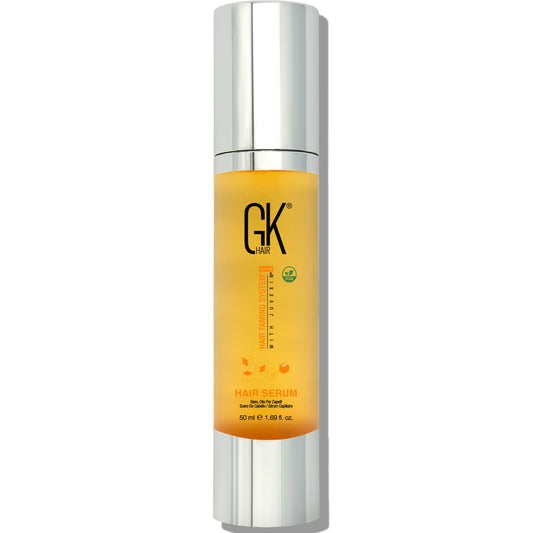
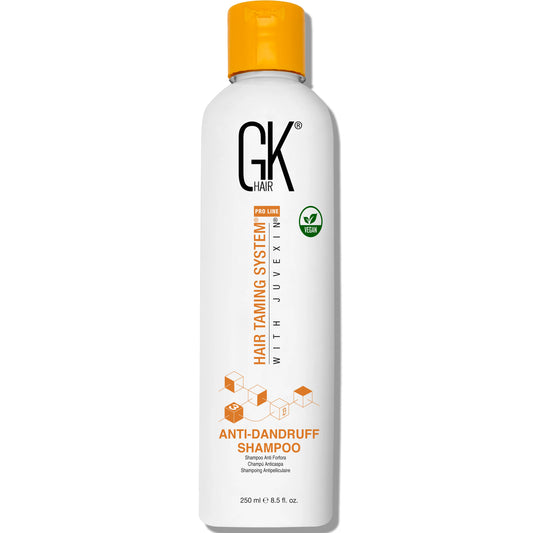
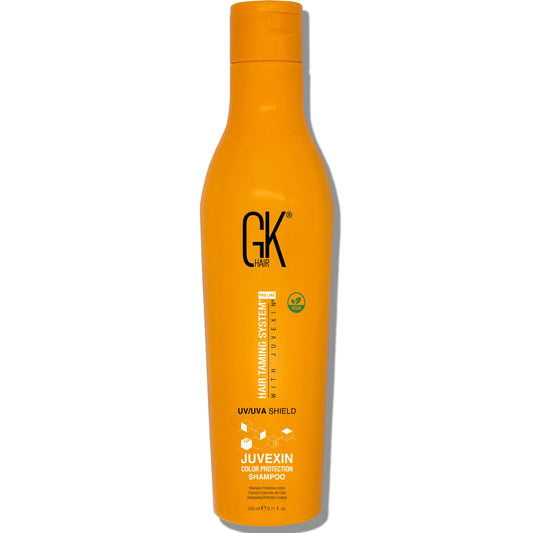
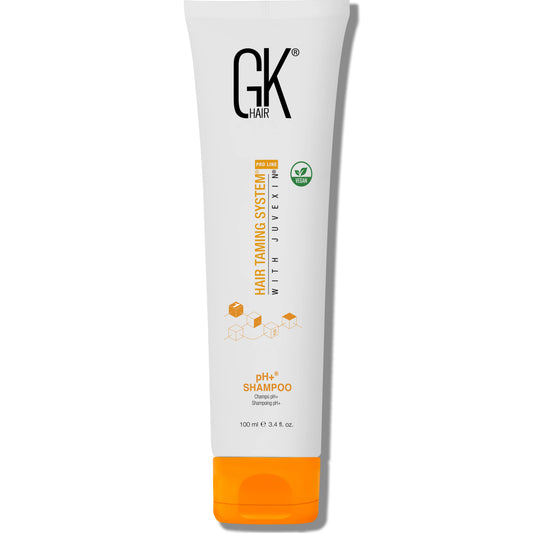
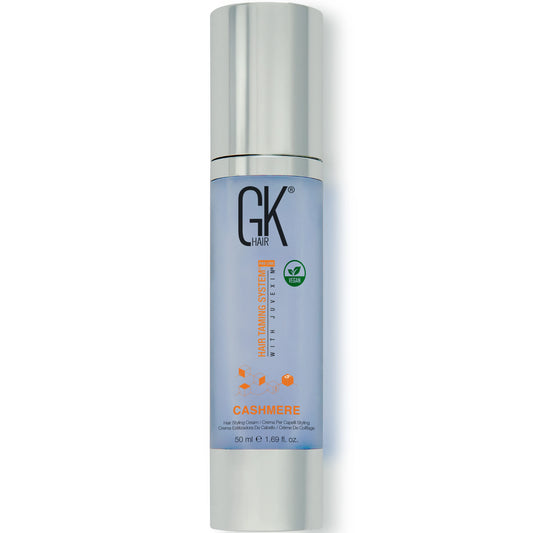
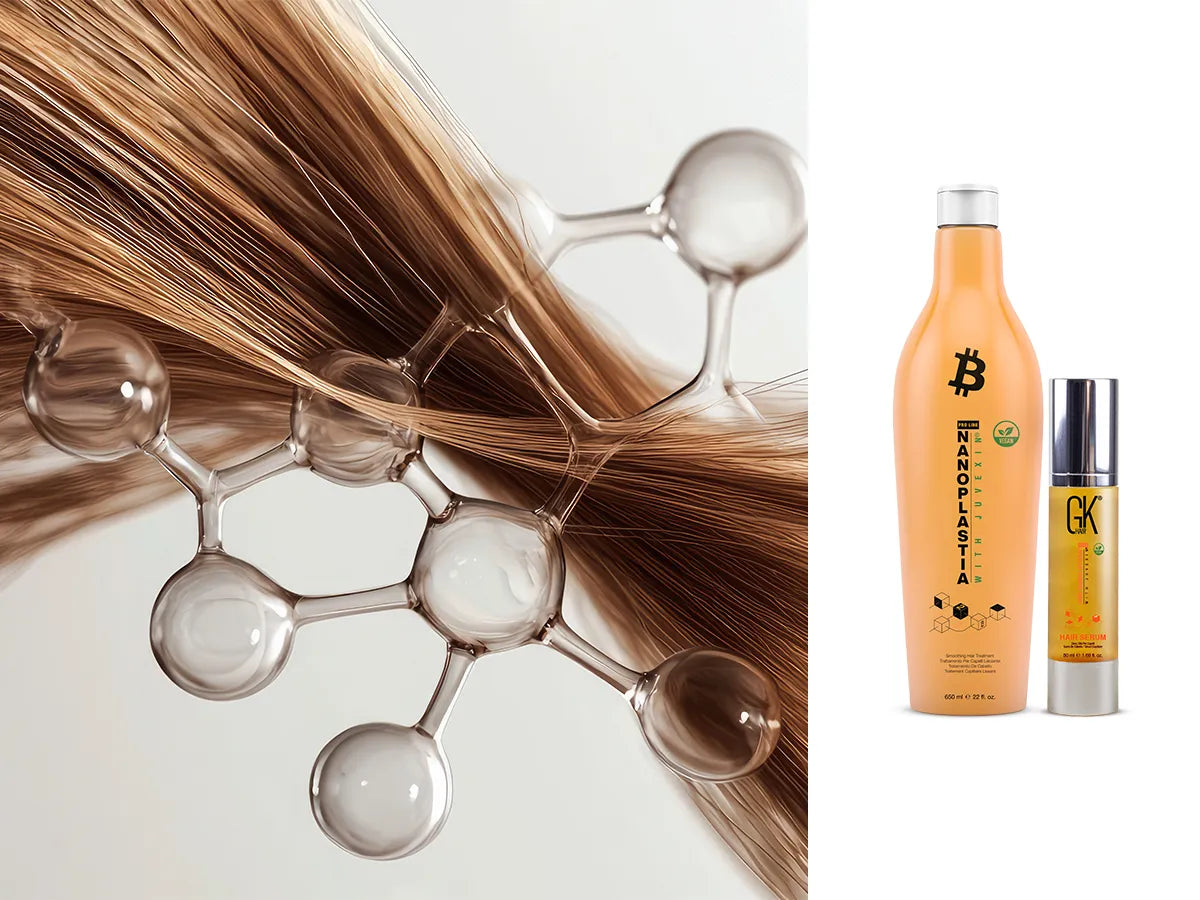


Leave a comment